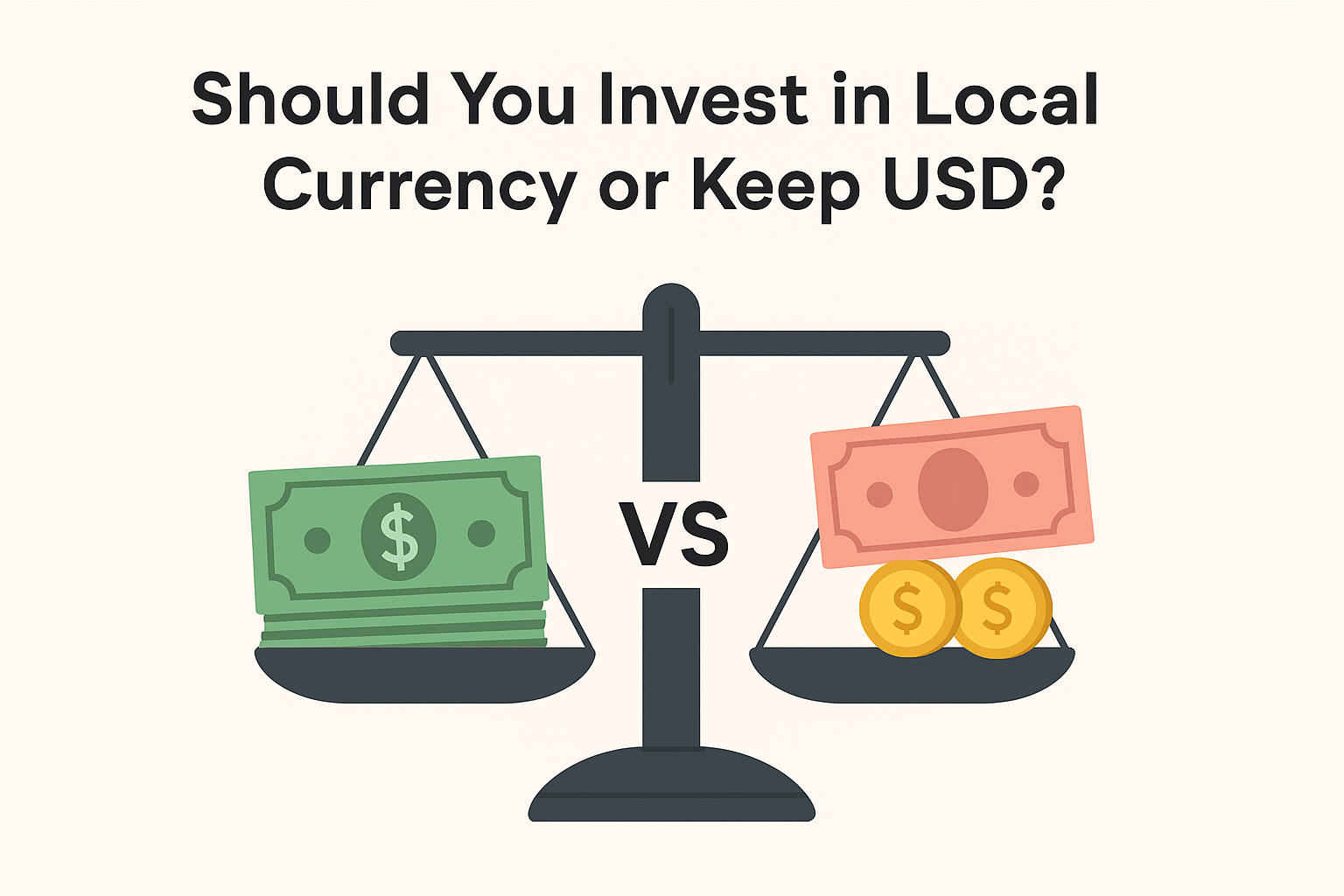When you move abroad, invest internationally, or even just travel extensively, one question quickly becomes unavoidable: should you hold and invest in the local currency, or keep your wealth in U.S. dollars (USD)?
It’s not a trivial decision. Currency isn’t just a medium of exchange,it’s a store of value. Choosing the wrong one could quietly erode your wealth over time, while choosing wisely can create stability and opportunities. Let’s break it down intelligently.
Why USD Remains the Global Benchmark
The U.S. dollar is more than just America’s money,it’s the world’s reserve currency. Around 60% of global foreign exchange reserves are held in USD, and commodities like oil and gold are priced in it. That gives the dollar three key advantages:
- Stability – Compared to most currencies, the dollar has a long history of weathering financial storms.
- Liquidity – You can convert USD into nearly any currency quickly and cheaply.
- Global trust – Businesses and governments accept it, even outside U.S. borders.
For most investors and expats, keeping a portion of savings in USD acts like an insurance policy. It’s the financial equivalent of carrying an international passport,it opens doors everywhere.
The Case for Local Currency
That said, not everything should remain in dollars. Depending on where you live or invest, holding local currency can bring advantages:
- Daily Expenses – If you’re based in Mexico, Colombia, or Turkey, you’ll need pesos, pesos, or lira for everyday living. Constantly converting USD can rack up fees.
- Local Investments – Real estate, small businesses, and even government bonds in your host country are usually priced in local currency. Having it ready protects you from exchange swings.
- Potential Upside – Some currencies are undervalued relative to the dollar. If you believe a country’s economy will strengthen, holding local currency could deliver gains beyond the underlying investment.
For example: an investor who bought Brazilian real in 2016,when the currency was heavily depressed,saw returns not just from stocks but from the real’s appreciation.
The Risks of Going Local
But tread carefully. Local currencies often carry hidden risks:
- Inflation – Many developing nations suffer higher inflation than the U.S. That means the value of your cash can erode quickly.
- Political Risk – Currency controls, capital flight restrictions, or sudden devaluations can trap your money.
- Volatility – Emerging-market currencies can swing 10–20% in a year. That kind of unpredictability can wipe out investment gains if you’re unprepared.
In Argentina, for instance, investors who held too much peso watched their savings lose more than half their value in just a year due to inflation and devaluation.
A Smarter Approach: Diversify
The real answer isn’t USD or local currency,it’s both, in the right proportions.
- Keep USD for safety and global flexibility. This ensures you can exit quickly if conditions change.
- Hold local currency for expenses and targeted investments. Enough to cover 6–12 months of living costs is a good buffer.
- Consider a third option: “hard currencies.” Euros, Swiss francs, or even gold can act as hedges against both USD and volatile local currencies.
Think of it like portfolio allocation:
- 50–70% USD (safety and liquidity)
- 20–30% local currency (practicality and potential upside)
- 10–20% alternative hedges (EUR, CHF, gold, or crypto depending on risk appetite)
Final Thought
Whether you’re an investor, digital nomad, or expat, the currency question is less about “either/or” and more about strategy. The dollar anchors your wealth. Local currency makes your life abroad functional. And diversification gives you resilience against the unexpected.
In short: keep your roots in USD, but don’t ignore the soil you’re standing on.













